The Dangers & Health Risks Of Drug Abuse & Addiction
The Dangerous Impact of Drug Abuse
Drug abuse is a significant problem in the United States. One of the most critical issues concerning drug abuse is the high risk of developing an addiction. In addition, the abuse of drugs can have severe ramifications on a person’s physical health, mental health, and overall well-being.
Diagnosed clinically as a substance use disorder, addiction is a recognized condition involving compulsive use of a substance despite adverse consequences. Drug abuse is the inappropriate use of substances – including alcohol, prescription medication, or illegal drugs – for purposes such as pleasure, to feel or perform better in certain situations, or to change one’s perception of reality.
Get Help. Get Better. Get Your Life Back.
Searching for Accredited Drug and Alcohol Rehab Centers Near You?
Even if you have failed previously and relapsed, or are in the middle of a difficult crisis, we stand ready to support you. Our trusted behavioral health specialists will not give up on you. When you feel ready or just want someone to speak to about therapy alternatives to change your life call us. Even if we cannot assist you, we will lead you to wherever you can get support. There is no obligation. Call our hotline today.
(844) 597-1011Are you or somebody you know at serious risk of an overdose because of drug or alcohol abuse? If so, please call 911 right away. There are addiction rehab center addiction hotlines that can help guide you to proper local therapists & facilities.
SAMHSA TREATMENT HELPLINE
Struggling with substance use disorder? SAMHSA’s Addiction Treatment Helpline can connect you with proper help. (844) 597-1011
DRUG or ALCOHOL POISON CONTROL
If you’re experiencing or witnessing a drug- or alcohol-related poisoning, the poison control hotline can help. (844) 597-1011
Substance Abuse Hotline
Abusing substances creates both changes in behavior and how the brain works, specifically in the areas governing judgment and reward. Thus, continued abuse of importance can be a warning sign that individuals are beginning to lose control over their drug use. If you or someone you love is struggling with substance abuse, know that you are not alone. There are many resources available to help you through this difficult time. One of these resources is substance abuse hotlines.
What Are Substance Abuse Hotlines?
Substance abuse hotlines are confidential phone lines that are staffed by trained counselors who can provide support and resources to those struggling with addiction. These hotlines are available 24/7, so there is always someone available to talk to when you need it.
Who Will Answer My Call?
When you call a substance abuse hotline, you will be connected with a counselor who is specifically trained to help people in your situation. These counselors are non-judgmental and compassionate, and they will work with you to create a personalized plan for recovery.
What if I Don’t Want to Talk on the Phone?
If you are not ready to talk on the phone, there are other ways to contact substance abuse hotlines. Many of them also offer chat and text services, so you can communicate in the way that you feel most comfortable.

Get Your Life Back
Find Hope & Recovery. Get Safe Comfortable Detox, Addiction Rehab & Dual Diagnosis High-Quality Care.
Hotline(844) 597-1011National Drug Abuse Hotlines You Can Call For Help
There are many national drug abuse hotlines that you can call for help. Some of these include:
The National Drug and Alcohol Treatment Referral Routing Service: 1-800-662-HELP (4357). he SAMHSA National Helpline: 1-800-662-HELP (4357). And the National Council on Alcoholism and Drug Dependence Hope Line: 1-800-622-2255.
If you are struggling with substance abuse, know that there is help available. Hotlines for drug abuse can provide you with the support and resources you need to begin your journey to recovery.
First-class Facilities & Amenities
World-class High-Quality Addiction & Mental Health Rehabilitation Treatment
Rehab Centers TourRenowned Addiction Centers. Serene Private Facilities. Inpatient rehab programs vary.
Addiction Helpline(844) 597-1011Proven recovery success experience, backed by a Team w/ History of:
15+
Years of Unified Experience
100s
5-Star Reviews Across Our Centers
10K
Recovery Success Stories Across Our Network
- Low Patient to Therapist Ratio
- Onsite Medical Detox Center
- Comprehensive Dual-Diagnosis Treatment
- Complimentary Family & Alumni Programs
- Coaching, Recovery & Personal Development Events
Symptoms Of Drug Abuse
Depending upon your drug of choice, the symptoms that suggest the presence of an addiction that requires treatment will vary. In addition, different classes of drugs have other telltale signs that signify usage.
In general, however, there are several signs that drug abuse or alcohol abuse is a severe problem. If you recognize some or all of the following things happening to someone you care about or happening in your own life, drug abuse may be an issue that needs to be addressed in treatment:
- Isolating from family and friends who don’t use drugs
- Spending time with new friends or friends who get high or drink
- Never having money or often asking to borrow money, even for small items
- Showing up late to work/school or not showing up at all
- Losing a job
- Doing little to find a job if out of work
- Paying less attention to basic hygiene
- Changes in sleeping habits
- Extremely private about possessions, including their bag, room, or car
- Lying about using or drinking
- Sneaking away to get high or drunk
You may find hidden bottles of alcohol or drug paraphernalia among your loved one’s belongings. Personality changes often occur with substance abuse and addiction. You or your loved one may be more irritable or agitated and even blow off commitments or family events.
Drug Abuse In Adults
The earlier in one’s life that drug abuse begins, the more likely an individual will become addicted. Substance use in adults can become part of a pattern of unsafe behaviors, including unsafe sex and driving under the influence. The availability of adults may be more likely to abuse dangerous “club drugs,” which, as part of the general picture of alcohol and drugs being used by this demographic, can lead to severe problems including:
- Lifelong legal problems.
- Impaired memory.
- Poor judgment.
- Development of mental health issues.
- Overdose or death.
- Injury due to intoxication.
- Addiction
- Severe, irreversible physical health problems, such as HIV, Hepatitis C, or damage to major organs.

World-class, Accredited, 5-Star Reviewed, Effective Addiction & Mental Health Programs. Complete Behavioral Health Inpatient Rehab, Detox plus Co-occuring Disorders Therapy.
CALL(844) 597-1011End the Addiction Pain. End the Emotional Rollercoaster. Get Your Life Back. Start Drug, Alcohol & Dual Diagnosis Mental Health Treatment Now. Get Free, No-obligation Guidance by Substance Abuse Specialists Who Understand Addiction & Mental Health Recovery & Know How to Help.
Prescription Drug Abuse
Prescription drug abuse has become more common. Even when intended for valid medical or psychological issues, prescription drugs should be taken differently than prescribed or taken by other individuals. For example, opioid painkillers can be prescribed to treat pain due to an injury or chronic condition. The central nervous system depressants known as benzodiazepines are often prescribed for anxiety. Individuals who suffer from attention-deficit disorder, narcolepsy, or obesity may have received prescriptions for stimulant medications with mechanisms of action similar to cocaine and methamphetamine.
In some cases, the pleasurable effects of these drugs (the euphoria that drug abusers seek) are only temporary. As the patient develops a tolerance to the drugs, the desired effects lessen, and the high goes away. Some individuals may assume that the drugs are no longer working, increasing their dosage to feel the effects.
This development of tolerance is often the first in a series of steps that can lead to addiction. Strictly speaking, the very first time an individual takes more than their prescribed dose or takes prescribed doses too closely together, they have already begun to abuse the medication.
States are beginning to monitor doctors who prescribe certain drugs more closely to ensure they are not overly prescribed. This technique has led to reduced drug abuse in some communities, according to the FDA. However, it has also increased the likelihood for some individuals to seek these drugs on the street.
Experience Transformative Recovery at We Level Up Treatment Centers.
See our authentic success stories. Get inspired. Get the help you deserve.



Start a New Life
Begin with a free call to an addiction & behavioral health treatment advisor. Learn more about our dual-diagnosis programs. The We Level Up Treatment Center Network delivers recovery programs that vary by each treatment facility. Call to learn more.
- Personalized Care
- Caring Accountable Staff
- World-class Amenities
- Licensed & Accredited
- Renowned w/ 100s 5-Star Reviews
We’ll Call You
Popular Club Drugs
Club drugs are prevalent in many venues where young people prefer to spend their time, such as parties, concerts, or raves. In addition, older teens and adults can get access to these same drugs in clubs and bars regularly.
- Gamma Hydroxybutyrate (GHB)
Gamma hydroxybutyric acid (GHB) has a high potential for abuse and no recognized medical use in the United States. This drug is a central nervous system depressant.
GHB imitates the GABA neurotransmitter in the human brain. GABA works by regulating consciousness, activity, sleep, improving mood, and promoting relaxation. When GHB is taken, it can create feelings of euphoria, drowsiness, reduced anxiety, confusion, and memory impairment. These effects can lead to GHB being used as a “date rape” drug since the individual may not recollect the event. Combining GHB with other drugs or alcohol can lead to breathing difficulties and overdose. Continued abuse of GHB can result in coma, seizures, and even death.
- Rohypnol
A second central nervous system depressant popular among young people is a benzodiazepine called Rohypnol. Like GHB, Rohypnol can decrease inhibitions, impair memory and coordination, and create a feeling of euphoria. Rohypnol is often used to sedate and incapacitate a victim of a sexual attack, leaving them with no memory of the attack. Continued abuse of Rohypnol can lead to addiction.
- Ketamine
Ketamine is an anesthetic with dissociative properties, which some users find enjoyable. However, ketamine can lead to euphoria, hallucinations, distorted perception of sight and sound, disconnection, and loss of control.
Taking even small amounts of ketamine can result in significantly dangerous symptoms, including difficulties with cognition and focus and becoming unresponsive to stimuli. Moderate use generally produces hallucinations and a dreamy euphoria. Higher doses may cause the individual to suffer from amnesia or become delirious.
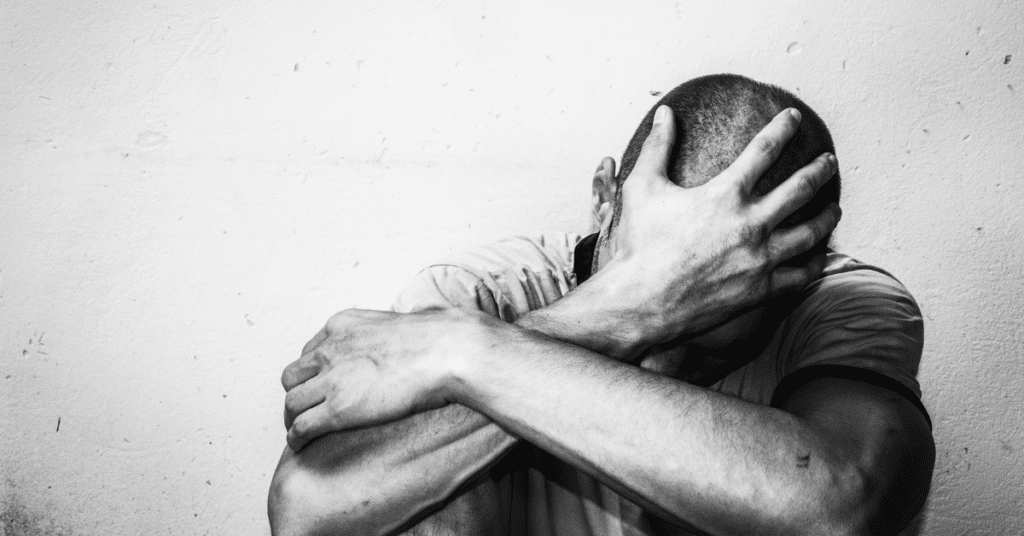
Unseen Dangers of Drug Abuse
Drug abuse can lead to health problems involving the liver and other major organs. However, other dangers can come from the misuse of drugs or alcohol that many individuals do not consider. For instance, drug abuse can lead an individual to make risky decisions that place them into dangerous situations, along with those around them. These decisions can have lasting impacts on a variety of conditions.
An individual who abuses substances by injecting them directly into muscle tissue or veins drastically increases their risk of infection. Sharing needles can easily transmit HIV/AIDS and chronic hepatitis viruses. In addition, substances often impair judgment and decision-making, leading users to make unsafe choices.
When an individual is under the influence of drugs or alcohol, they may be more likely to underestimate the effects of the substance on reaction time and judgment, leading them to drive under the influence. In the United States, 29.1 million people admitted to driving under the influence of alcohol in 2012. In addition, 10 million Americans over the age of 12 were permitted to drive under the influence of illicit drugs in the last year.
Drug Abuse and Brain Damage
Brain damage is a significant risk of drug abuse. For example, cocaine can cause strokes so small they often go unnoticed but result in brain tissue death and the gradual accumulation of neurologic deficits. Likewise, MDMA (Ecstasy) [1] can disrupt the brain’s ability to usually produce serotonin, a chemical responsible for equalizing mood, aggression, and other emotions. This can lead users to be unable to control or experience normal emotions without using the drug.
Some drug users will engage in reckless activities such as binge use of certain drugs or alcohol. When this happens, even if the individual does not meet the diagnostic criteria for a substance use disorder, the activity may result in irreversible brain lesions – for example, those sustained due to significant head trauma – that can render the individual permanently brain-damaged and ultimately disabled.
Damage to the brain can also manifest as psychological. For example, drug abuse can lead to anxiety and depression, which can worsen pre-existing psychotic symptoms. In addition, the chemical changes in the brain can direct users to experience an inability to enjoy life without drugs and their euphoric effects.
When individuals begin to abuse drugs, they may find that their lives outside of their drug use are affected. They may be unable to perform as well at their jobs, which can lead to financial struggles. They may relate differently to their families, leading to strained relationships and the destruction of existing families. Factors such as these, or legal troubles, can contribute to anxiety, depression, and other mental health conditions. These conditions may often contribute to more drug abuse, which can culminate in serious addiction.
Drug Abuse Hotline
Cravings can happen anytime. They don’t always occur at convenient times, such as during a therapy appointment or a 12-step meeting. This is when a drug abuse hotline can be most helpful.
Benefits of a Drug Abuse Hotline
When you are fighting off the urge to relapse, immediate help is essential. You may not have the luxury of waiting for a therapist, sponsor, close friend, or family member to call you back. There may be no self-help meetings nearby at that specific time. You need help immediately – and there’s nothing more immediate than a phone call to a drug abuse hotline.
In addition to the immediate gratification, you get:
- Connection to treatment resources: Staff members at drug abuse hotlines are knowledgeable about the different types of addiction treatment available. If you have relapsed or fear that you will, the counselor you call at the drug abuse hotline can help determine what kind of treatment will help you avoid falling back into active addiction.
- No charge: You pay nothing to call a toll-free drug abuse hotline, and you can talk as long as you need to about your cravings or what happened that made you want to relapse.
- Anonymity. Everything you say on the phone to your drug abuse hotline operator stays between you and the person on the other end of the line.
Getting Help for Drug Abuse. We Level Up Hotline for Drug Abuse.
At We Level Up Treatment Center, our clinical teams provide world-class care with round-the-clock medical professionals available to help you cope. Our drug abuse treatment professionals work as a team to provide you with the optimum drug abuse treatment throughout your stay. Make this your opportunity to reclaim your life. Call today to speak with one of our drug abuse treatment specialists. Our specialists know what you are going through and will answer any of your questions.
Your call is private and confidential, and there is never any obligation.
We Level Up operates a National Substance Abuse Rehabilitation Centers Network. Popular Upscale 5-star rated Florida addiction and mental health treatment centers include:
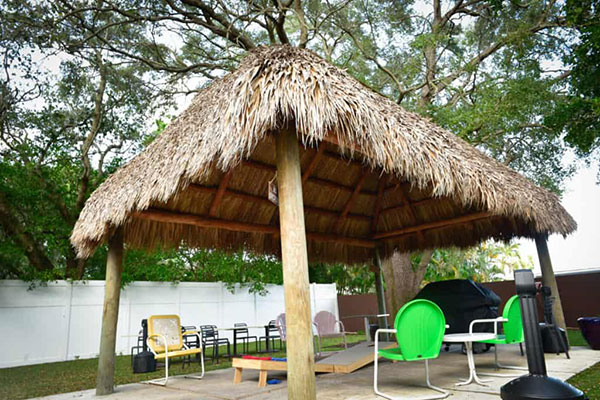
We Level Up Tamarac FL
Premier Behavioral Health Treatment Center
Licensed & Accredited w/ 5-star reviews.- Inpatient mental health treatment center
- Therapy for depression, anxiety, trauma, bipolar disorder, PTSD, and more.
- Dual diagnosis rehab programs available

We Level Up West Palm Beach
Premier Behavioral Health Treatment Center
Licensed & Accredited.- Inpatient mental health treatment center
- Therapy for depression, anxiety, trauma, bipolar disorder, PTSD, and more.
- Dual diagnosis rehab programs available
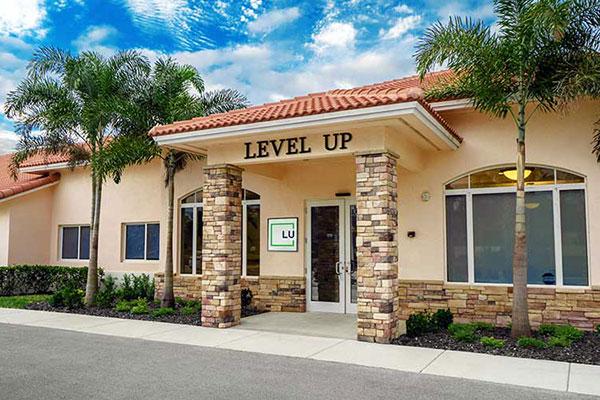
We Level Up Lake Worth
Drug & Alcohol Addiction Treatment Center w/Detox
Licensed & Accredited w/ 5-star reviews.- Inpatient addiction rehab center w/medical detox
- Addiction treatment and detox for alcohol, benzo, heroin, opioid, and more.
- Secondary mental health treatment available as part of our dual diagnosis programs.
Sources
[1] National Institute on Drug Abuse – https://www.drugabuse.gov/publications/drugfacts/mdma-ecstasymolly
The Dangers & Health Risks Of Drug Abuse & Addiction
What is Drug Addiction?
Drug addiction is a chronic disease characterized by compulsive or uncontrollable drug seeking and use despite harmful consequences and changes in the brain, which can be long-lasting. These changes in the brain can lead to unhealthy behaviors seen in people who use drugs. Drug addiction is also a relapsing disease. Relapse is the return to drug use after an attempt to stop.
The path to drug addiction begins with the voluntary act of taking drugs. But over time, a person’s ability to choose not to do so becomes compromised. Seeking and taking the drug becomes compulsive. This is primarily due to the effects of long-term drug exposure on brain function. Addiction affects parts of the brain involved in reward and motivation, learning and memory, and control over behavior. Thus, addiction is a disease that affects both the brain and behavior. Fortunately, there’s a lot of drug abuse treatment obtainable for all kinds of addiction.
Get Help. Get Better. Get Your Life Back.
Searching for Accredited Drug and Alcohol Rehab Centers Near You?
Even if you have failed previously and relapsed, or are in the middle of a difficult crisis, we stand ready to support you. Our trusted behavioral health specialists will not give up on you. When you feel ready or just want someone to speak to about therapy alternatives to change your life call us. Even if we cannot assist you, we will lead you to wherever you can get support. There is no obligation. Call our hotline today.
(844) 597-1011Drug Abuse Treatments
Many options have been successful in treating drug addiction, including:
- Behavioral counseling
- Medication
- Medical devices and applications used to treat withdrawal symptoms or deliver skills training
- Evaluation and treatment for co-occurring mental health issues such as depression and anxiety
- Long-term follow-up to prevent relapse
A range of care with a tailored treatment program and follow-up options can be crucial to success. Treatment should include both medical and mental health services as needed. Follow-up care may include community- or family-based recovery support systems.
Top Treatment Options for Drug Abuse
There is no one treatment for drug abuse. This fact reflects the complexity of the condition and its diverse manifestations, highlighting the importance of the assessment process, which is critical in helping determine the best treatment for a given individual. In addition, drug abuse treatment may occur in different settings, with varying degrees of professional assistance (e.g., self-help/12-step and professional help) and other modalities of professional services (e.g., individual therapy, group therapy, family therapy, and pharmacological treatment).
Drug abuse treatment may be characterized as specialized treatment with one main goal: to stop using the substance. Treatment is primarily talking therapy—counseling and psychotherapy; in addition, medications may be employed to manage detoxification from some drugs and to treat coexisting psychological or medical conditions.
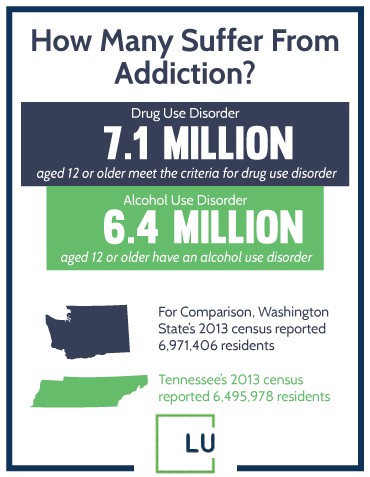
However, regardless of the setting of treatment, the intensity of the therapy schedule, or which addiction counselor renders the treatment, ultimately talk therapy that takes place. Especially early in treatment, the focus of treatment is on behaviors directly related to drug abuse and stopping the use of the addictive drug. Most programs and professionals recommend complete abstinence from drugs. Some have the goal of harm reduction allowing users to continue while attempting to reduce drug use to less harmful levels, but they are in the minority.
Does Drug Abuse Treatment Work?
Yes, but it’s not simple. Because addiction is a chronic disease, people can’t simply stop using drugs for a few days and be cured. Instead, most patients need long-term or repeated care to stop using completely and recover their lives.
Addiction treatment must help the person do the following:
- Stop Using Drugs
- Stay Drug-free
- Be productive in the family, at work, and in society

Get Your Life Back
Find Hope & Recovery. Get Safe Comfortable Detox, Addiction Rehab & Dual Diagnosis High-Quality Care.
Hotline(844) 597-1011General Principles Of Treatment
Some considerations specific to offenders include the following:
- Treatment should include developing specific cognitive skills to help the offender adjust attitudes and beliefs that lead to drug abuse and crime, such as feeling entitled to have things one’s way or not understanding the consequences of one’s behavior. This includes skills related to thinking, understanding, learning, and remembering.
- Treatment planning should include tailored services within the correctional facility and transition to community-based treatment after release.
- Ongoing coordination between treatment providers and courts or parole and probation officers is essential in addressing the complex needs of offenders re-entering society.
The We Level Up treatment center network provides world-class care with round-the-clock medical professionals available to help you cope. We work as an integrated team providing information about drug abuse treatment and other aspects of recovery. Make this your opportunity to reclaim your life. Call today to speak with one of our treatment specialists. Our advisors know what you are going through and will answer any of your questions.
Principles of Effective Drug Abuse Treatment
Based on scientific research since the mid-1970s[1], the following fundamental principles should form the basis of any effective treatment program:
- Addiction is a complex but treatable disease that affects brain function and behavior.
- No single treatment is suitable for everyone.
- People need to have quick access to treatment.
- Effective treatment addresses all of the patient’s needs, not just their drug use.
- Staying in treatment long enough is critical.
- Counseling and other behavioral therapies are the most commonly used forms of treatment.
- Medications are often an essential part of treatment, especially when combined with behavioral therapies.
- Treatment plans must be reviewed often and modified to fit the patient’s changing needs.
- Treatment should address other possible mental disorders.
- Medically assisted detoxification is only the first stage of treatment.
- Treatment doesn’t need to be voluntary to be effective.
- Drug use during treatment must be monitored continuously.
- Treatment programs should test patients for HIV/AIDS, hepatitis B and C, tuberculosis, and other infectious diseases and teach them about steps they can take to reduce their risk of these illnesses.
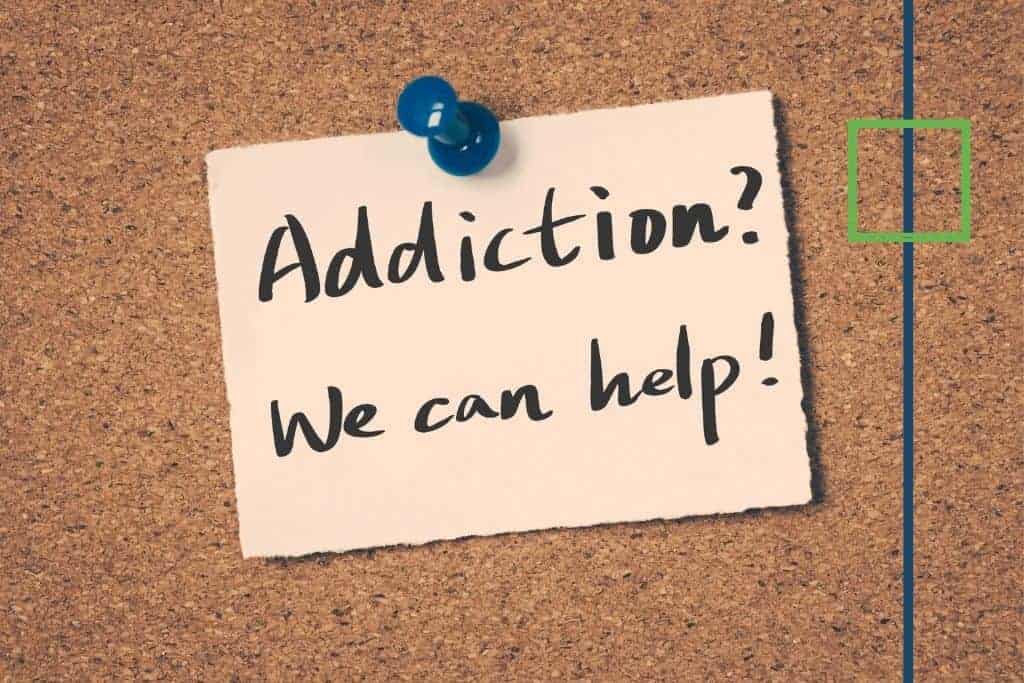
Medications and Devices Used In Drug Abuse Treatment
Medications and devices can be used to manage withdrawal symptoms, prevent relapse, and treat co-occurring conditions.
- Withdrawal: Medications and devices can help suppress withdrawal symptoms during detoxification. Detoxification is not in itself “treatment,” but only the first step in the process. Patients who do not receive any further treatment after detoxification usually resume their drug use. One study of treatment facilities found that medications were used in almost 80 percent of detoxifications (SAMHSA, 2014).
- Relapse prevention: Patients can use medications to help re-establish normal brain function and decrease cravings. Medications are available to treat opioids (heroin, prescription pain relievers), tobacco (nicotine), and alcohol addiction. People who use more than one drug, which is very common, need treatment for all substances they use.
First-class Facilities & Amenities
World-class High-Quality Addiction & Mental Health Rehabilitation Treatment
Rehab Centers TourRenowned Addiction Centers. Serene Private Facilities. Inpatient rehab programs vary.
Addiction Helpline(844) 597-1011Proven recovery success experience, backed by a Team w/ History of:
15+
Years of Unified Experience
100s
5-Star Reviews Across Our Centers
10K
Recovery Success Stories Across Our Network
- Low Patient to Therapist Ratio
- Onsite Medical Detox Center
- Comprehensive Dual-Diagnosis Treatment
- Complimentary Family & Alumni Programs
- Coaching, Recovery & Personal Development Events
What are the best drug abuse treatment centers behavioral therapies?
Behavioral therapies help patients:
- Modify their attitudes and behaviors related to drug use
- Increase healthy life skills
- Persist with other forms of treatment, such as medication
Patients can receive treatment in many different settings with various approaches.
Outpatient behavioral treatment includes a wide variety of programs for patients who visit a behavioral health counselor regularly. Most of the programs involve individual or group drug counseling, or both. In addition, these programs typically offer forms of behavioral therapy such as:
- Cognitive-behavioral therapy: which helps patients recognize, avoid, and cope with the situations in which they are most likely to use drugs
- Multidimensional family therapy: developed for adolescents with drug abuse problems as well as their families, which addresses a range of influences on their drug abuse patterns and is designed to improve overall family functioning
- Motivational interviewing: which makes the most of people’s readiness to change their behavior and enter treatment
- Motivational incentives (contingency management): which uses positive reinforcement to encourage abstinence from drugs
Treatment is sometimes intensive at first, where patients attend multiple outpatient sessions each week. After completing intensive treatment, patients transition to regular outpatient treatment, which meets less often and for fewer hours per week to help sustain their recovery.
Inpatient or residential treatment can also be very effective, especially for more severe problems (including co-occurring disorders). Licensed residential treatment facilities offer 24-hour structured and intensive care, including safe housing and medical attention. In addition, residential treatment facilities may use a variety of therapeutic approaches, and they are generally aimed at helping the patient live a drug-free, crime-free lifestyle after treatment. Examples of residential treatment settings include:
- Therapeutic communities are highly structured programs in which patients remain at a residence, typically for 6 to 12 months. The entire community, including treatment staff and those in recovery, act as critical agents of change, influencing the patient’s attitudes, understanding, and behaviors associated with drug use.
- Shorter-term residential treatment, which typically focuses on detoxification and provides initial intensive counseling and preparation for treatment in a community-based setting.
- Recovery housing provides supervised, short-term housing for patients, often following other types of inpatient or residential treatment. Recovery housing can help people transition to an independent life—for example, helping them learn how to manage finances or seek employment, as well as connecting them to support services in the community.
World-class, Accredited, 5-Star Reviewed, Effective Addiction & Mental Health Programs. Complete Behavioral Health Inpatient Rehab, Detox plus Co-occuring Disorders Therapy.
CALL(844) 597-1011End the Addiction Pain. End the Emotional Rollercoaster. Get Your Life Back. Start Drug, Alcohol & Dual Diagnosis Mental Health Treatment Now. Get Free, No-obligation Guidance by Substance Abuse Specialists Who Understand Addiction & Mental Health Recovery & Know How to Help.
How Many People Get Drug Abuse Treatments?
Addiction is a complex disease that can affect many areas of a person’s life. In 2017, it was estimated that 20.7 million Americans needed treatment for substance use disorders; however, only 2.5 million received specialized substance use treatment[2].
- Drug addiction can be treated, but it’s not simple. Addiction treatment must help the person do the following:
- Stop using drugs
- Stay drug-free
- Be productive in the family, at work, and in society
- Successful treatment has several steps:
- Detoxification
- Behavioral counseling
- Medication (for opioid, tobacco, or alcohol addiction)
- Evaluation and treatment for co-occurring mental health issues such as depression and anxiety
- Long-term follow-up to prevent relapse
- Medications and devices can be used to manage withdrawal symptoms, prevent relapse, and treat co-occurring conditions.
- Behavioral therapies help patients:
- Modify their attitudes and behaviors related to drug use
- Increase healthy life skills
- Persist with other forms of treatment, such as medication
- People within the criminal justice system may need additional treatment services to treat drug use disorders effectively. However, many offenders don’t have access to the types of services they need.
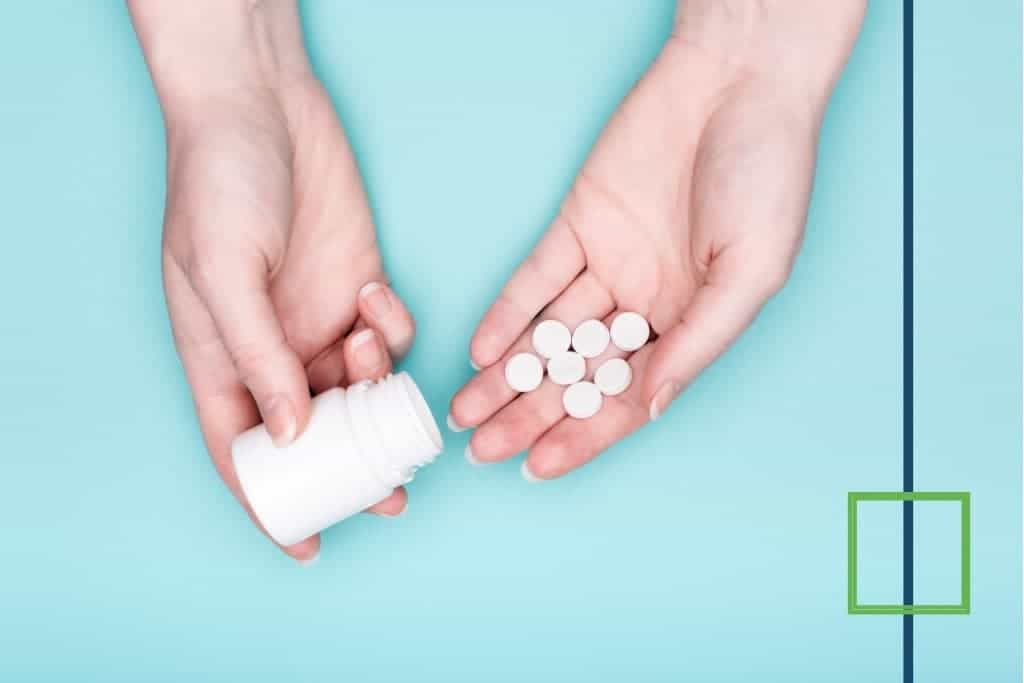
Drug abuse treatment can help many drug-using offenders change their attitudes, beliefs, and behaviors towards drug abuse, avoid relapse; and successfully remove themselves from a life of substance abuse and crime.
Many of the principles of treating drug addiction are similar for people within the criminal justice system and those in the general population. However, many offenders don’t have access to the types of services they need. Treatment that is of poor quality or is not well suited to the needs of offenders may not be effective at reducing drug use and criminal behavior.
The We Level Up rehab center network can help with inpatient therapy programs exclusively. Depending on the extent of secondary behavioral disorders such as addiction we can first help assess your condition and thereafter guide you to suitable treatment options. We do not provide outpatient and PHP services at this time. Call to learn more.
Your call is private and confidential, and there is never any obligation.
Experience Transformative Recovery at We Level Up Treatment Centers.
See our authentic success stories. Get inspired. Get the help you deserve.



Start a New Life
Begin with a free call to an addiction & behavioral health treatment advisor. Learn more about our dual-diagnosis programs. The We Level Up Treatment Center Network delivers recovery programs that vary by each treatment facility. Call to learn more.
- Personalized Care
- Caring Accountable Staff
- World-class Amenities
- Licensed & Accredited
- Renowned w/ 100s 5-Star Reviews
We’ll Call You
Source
[1] NIDA – Principles of Effective Treatment: https://www.drugabuse.gov/publications/drugfacts/treatment-approaches-drug-addiction
[2] SAMHSA – https://www.samhsa.gov//2017-nsduh-annual-national-report
We Level Up New Jersey – Addiction » What Happens During Detox in a Substance Abuse Detox Center